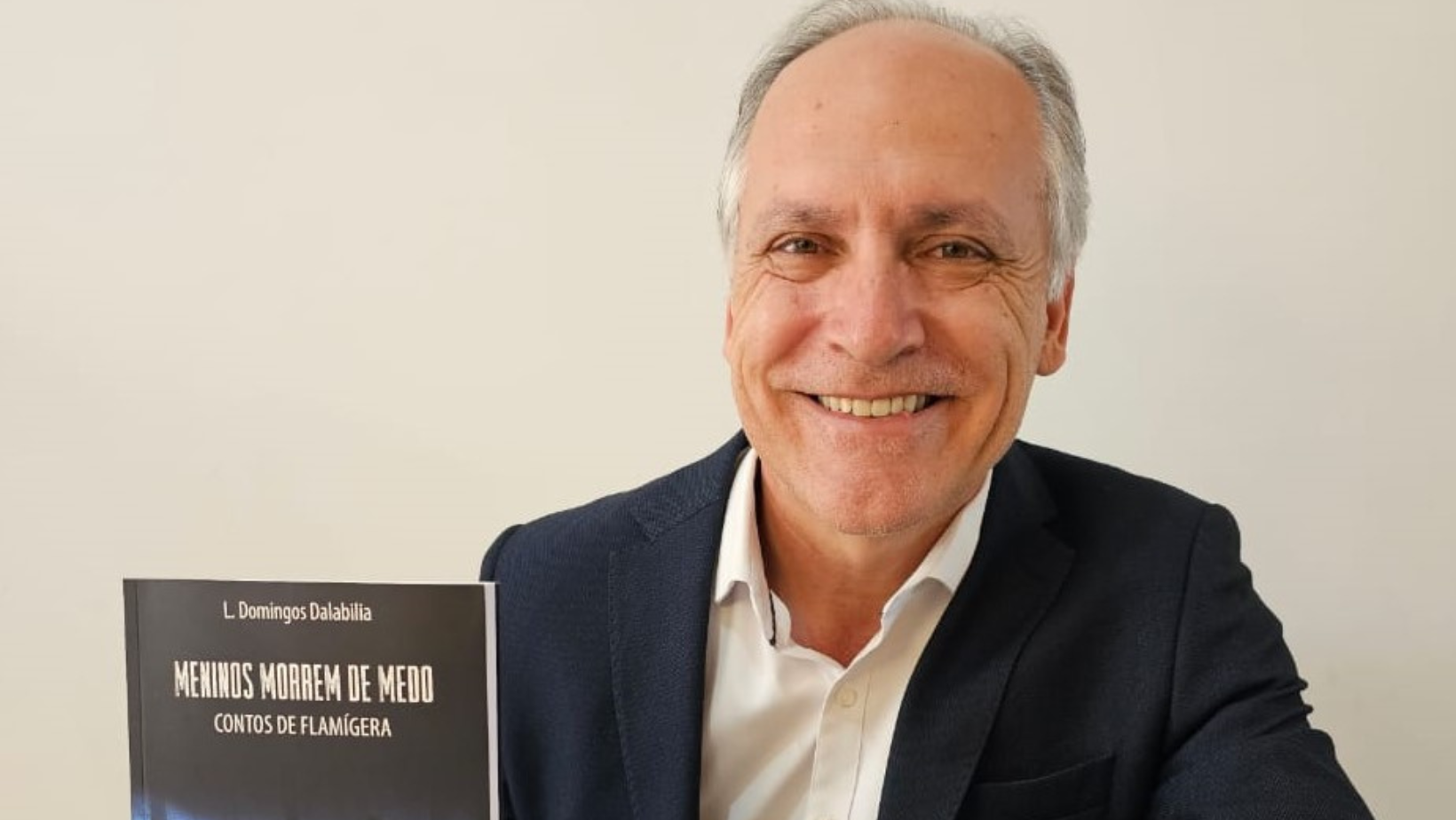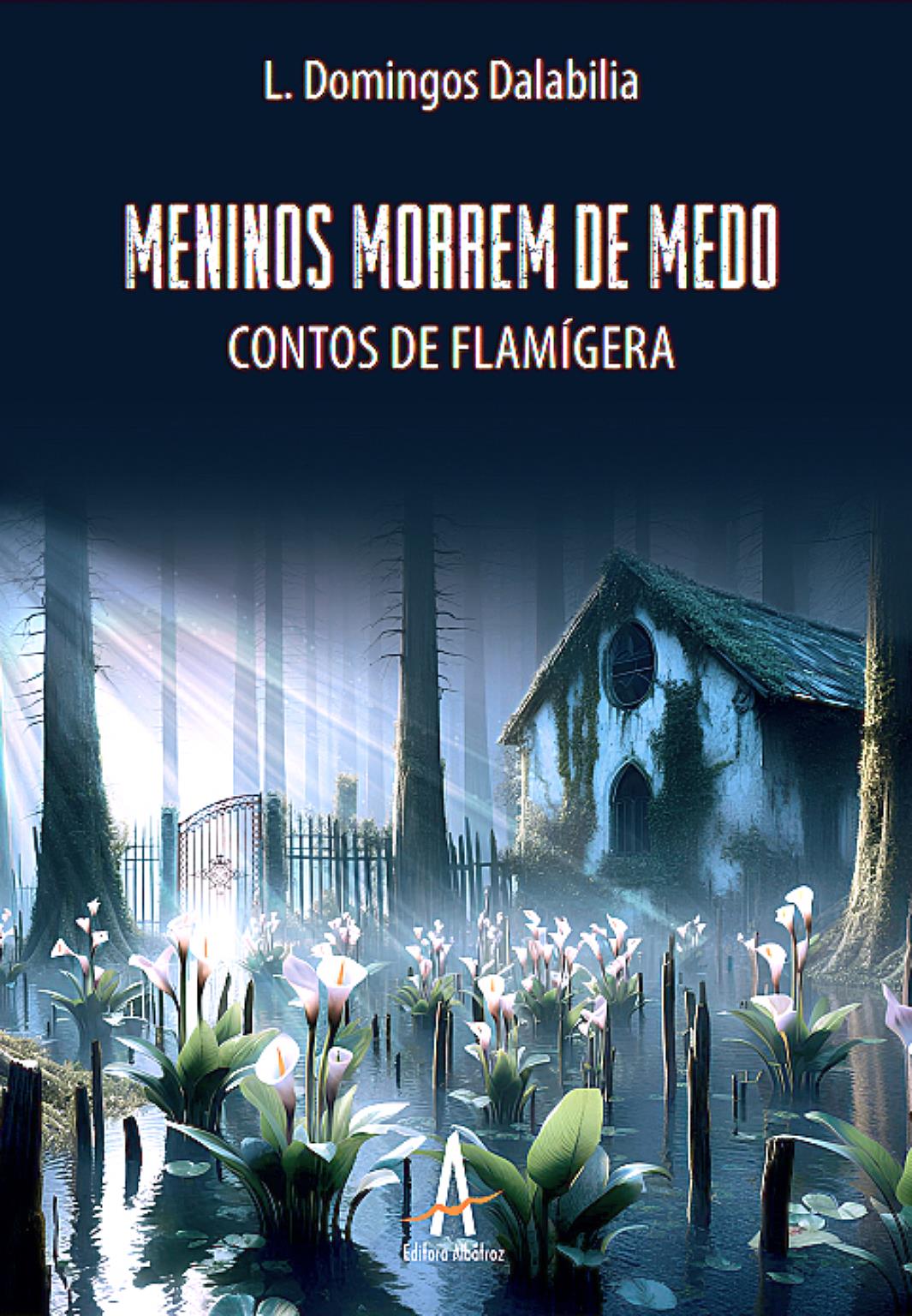
In his literary debut, lawyer and writer L. Domingos Dalabilia transports readers to Flamígera , a fictional city in the interior of Rio Grande do Sul where everyday life is permeated by trauma, family secrets and supernatural events. In the book Meninos Morrem de Medo, the author brings together 33 short stories that intertwine the psychological and the macabre, creating an atmosphere of terror that defies the boundary between reality and imagination. Inspired by authors such as Edgar Allan Poe and Charles Kiefer, Dalabilia uses writing to provoke deep reflections on human nature and its inner demons.
The interior of Rio Grande do Sul takes on dark contours in the pages of Meninos Morrem de Medo. How did the idea of transforming a seemingly everyday setting into a stage for such intense and frightening stories come about?
Macondo is the fictional city of Gabriel Garcia Marquez, Oceania , that of George Orwell , Comala , that of Juan Rulfo, Pau D’arco , that of Charles Kiefer, Gotham is the city of Batman… Stephen King, in the construction of his suspense stories, created several fictional cities in the state of Maine, such as Castle Rock, Jerusalem’s Lot and Derry , among others. I learned from Charles Kiefer the PENTE scheme, which is a prior choice or evaluation of the Characters, the Plot, the Narrator, the Time and the Space to structure the story. The Space is the place or main place where the stories take place. If we were to use the name of a real city as the setting, we could hurt or confuse sensibilities. That is why FLAMIGERA seems to me to be a name that has a lot of power, a certain magic. Several others can be derived from this word, such as Lamí (a neighborhood in Porto Alegre), lama, ame, ama, gera, amiga, era, etc. If we go a little further, Flamígera is the flaming star (of fire), a specific symbolism of a certain degree of the Scottish Rite of Freemasonry.
The village of Flamígera is almost a character in its own right, with its own secrets and mysteries. What do you think this setting brings that is unique to the narrative and how does it reflect the human issues addressed in the book?
Setting is a fundamental part of any story. Flamigera , in particular, represents light, radiance, a north, a star to follow. Paradoxically, in my fiction, however, it loses this shine and begins to express the place of the leftovers that exist in all of us, ambiguous beings, most of the time consciously or unconsciously cruel. Flamigera serves me to explore themes such as identity, belonging and the confrontation between tradition and modernity.
Your stories reveal the dark side of human nature and confront the reader with deep psychological dilemmas. In your opinion, how can literature help people face their own “inner demons”?
In Antigone, Sophocles already taught that of all the wonders of nature, the greatest is man. Industrious and skillful, he sometimes moves towards good and sometimes towards evil based on his own choices. He will, therefore, always be faced with an irreducible ministry of his Self in relation to the Self of other men. It is in the impenetrability of the “mystery” of the Self that all the causes of the actions and reactions of the “being” reside, many times evading reason, but always asking for understanding even when he has committed the worst atrocities. The main objective of my stories has always been to provide pleasure and impact the reader, so that from there, he can lead him to reflect on the need to fight all the demons that live within us.
Inspired by authors such as Edgar Allan Poe and Charles Kiefer, your writing has a provocative and reflective tone. What were the biggest challenges in balancing mystery, horror and introspection in your debut short stories?
Choosing the type of character, plot, narrator, time and space will never be an easy process. It was difficult to find this balance and could certainly have been better worked out. I chose to choose – for most of the narratives – the narrator character as the protagonist, in order to create an unbreakable bond of empathy and verisimilitude of the character with myself, the author, seeking to assimilate and incorporate the feelings of suspense, introspection and the type of psychological or supernatural horror that they would be experiencing.

Stories like “Peanuts” and “Demons” deal with family secrets and past traumas. In your experience, what makes these themes so universal and yet so difficult to address?
In addition to these two, I would also like to highlight the short story: “ Yellow Horns ”, a narrative told in the first person by a psychopath fixated on the color yellow, revealing cruel events from Flamígera to his final moment in the Lamí neighborhood in Porto Alegre. Secrets and traumas from the past are universal themes because we all have our intimate secrets, those unspeakable ones, and sometimes so frightening that if revealed they would make us be seen as the dark and frightening “Dracula”, by the Irish writer, Bram Stoker, a novel published 128 years ago, in 1897, which was a narrative launched through diaries, letters and newspaper articles that revealed the story of a vampire who fed on human blood in the middle of the Victorian Era. Not very different from the vampires who today dress in designer labels and labels and with whom we live daily.
You mention that your texts can change someone’s perspective on certain topics. What message or reflection do you hope readers take away with them after delving into Flamígera ’s stories ?
THE Prejudice exists and must always be fought. However, I believe that the Brazil in which we live, which is beautiful by its very nature, is becoming a dark place to live, especially since the mistaken idea that all white men are just privileged, born rich, opportunists, bad people, or that all black people are criminals, lazy and victims of society, incapable of finding their own space in the hostile world in which we live, has become “generalized”. This Manichaeism of dividing everything into “them and us” or “us and them”, right or wrong, yes and no, is what has led to the exacerbation, deepening and even the emergence of enmity and mutual antipathy that did not exist so strongly between people, neighbors and acquaintances. I notice a feeling of anger at the situation itself, on both sides, a segregationism that needs to end.
Boys Are Scared to Die mixes supernatural horror and the cruel realities of human life. What was the process of connecting these two elements so that they complemented each other rather than competed in the narrative?
The blending of psychological horror with the cruel reality of human life and social criticism occurred almost casually. Examples: When I realized, the boy in the story Lamia was referring to the boy in the story Demons and vice versa; the owner of the boat named “devil” who takes the boy from Lamia to drown him in the river is the grandfather of the protagonist of Demons. Arlinda, from the story “Arlinda’s Tea” is the sister-in-law of João, the “Bookstore Man”. The protagonist of the guerrilla fighter “Juvenal Monteiro” is the ghost grandfather of the character Joaquim (protagonist of “Os Ipês se cargam de flores em agosto”). I noticed that the rape of boys occurred in “Demons”, “o menino que não existe” and also in “Cornos amarelo”. I clearly noticed this mix when I first analyzed the short story “Desperado”, I found that the narrative could be understood as a political and/or sociological discourse and I considered that there was no problem with that, because living in the terrible social and economic conditions described by the protagonist (unnamed) – originally from Flamígera – and who lost everything he had due to decisions beyond his control, certainly was and always will be a “true terror”.
As a lawyer by training, how has the practice of law influenced your view of human nature and inspired you to write such dense and provocative stories?
All training, in general, helps us organize our thoughts. Through law, since I started practicing law, I have followed and continue to follow situations involving vulnerable children in institutions in RS and SP. We live in a world of violence of all kinds. History, Philosophy, Pedagogy and the Psychology I am currently studying are not just contemplative functions, they offer me the opportunity to act and reflect on my own condition and the human actions of the people I see and pass in front of me every day. I simply carry many identities as being those of my characters. This circumstance calms my spirit and helps me develop skills such as creativity, patience and assertive communication.
Follow L. Domingos Dalabilia on Instagram


